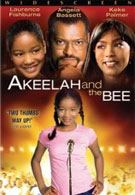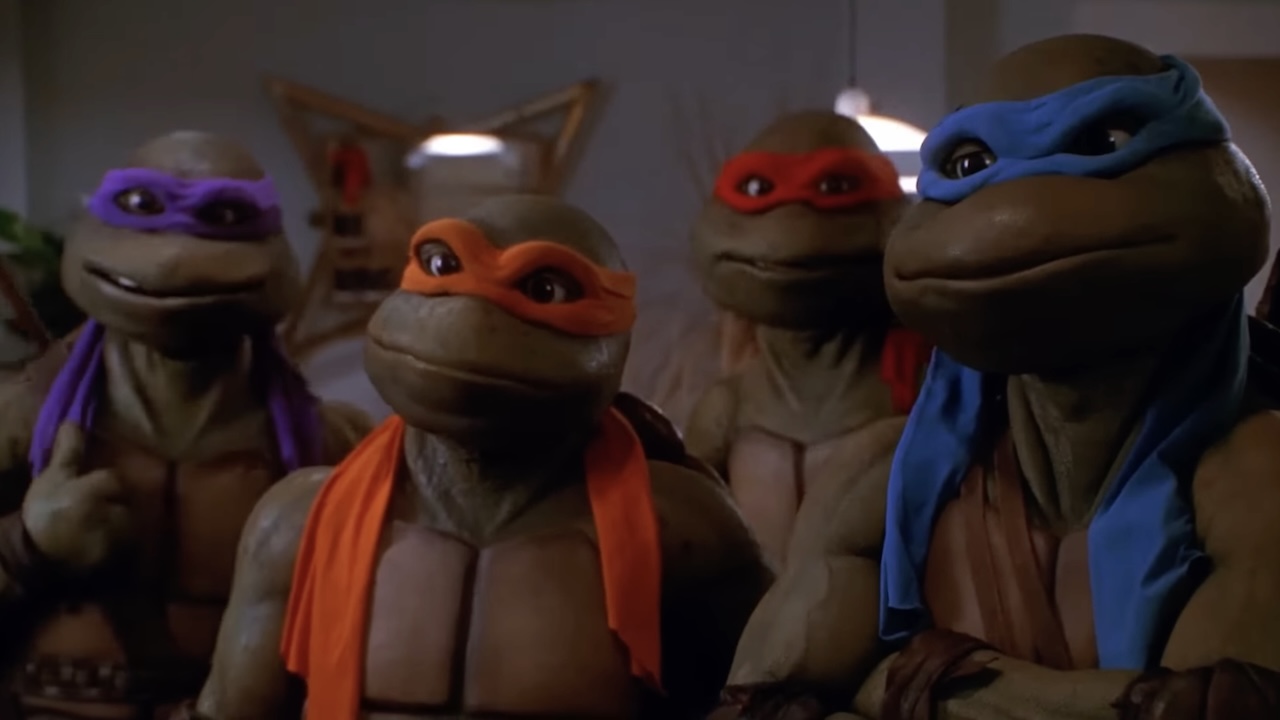Writer/director Doug Atchison spells success “A-K-E-E-L-A-H” with his winning tale of an underdog triumphing over adversity, set against the backdrop of South Central L.A. and the drama of the Scripps National Spelling Bee. Twelve-year old Keke Palmer shines in the title role as a gifted but troubled savant who beats the odds to compete against the best and brightest at the national finals in Washington D.C. Staphylococci. Effleurage. Carmagnole. Xanthosis. Brunneous. How would you like to be twelve years old, standing alone in the spotlight in front of a packed auditorium and a national TV audience, and be repeatedly asked to spell maddeningly obscure words like these? This is the dog-eat-dog world of the Scripps National Spelling Bee, a nerve-wracking endurance test of a brave and brilliant group of youngsters, made newly popular by ESPN telecasts and the riveting 2002 documentary Spellbound. Doug Atchison’s triumphant Akeelah and the Bee captures the inherent drama of the competition from a fresh new perspective, one that will have you wanting to stand up and cheer by story’s end.
Young Akeelah (Keke Palmer), despite her attitude and attendance problems, has developed a reputation as one of the brightest students at the financially embattled Crenshaw Middle School in southern Los Angeles. In order to bring some much needed media attention to the school’s plight, her principal (played by Curtis Armstrong, whom I can only ever picture as Booger, blasting Herculean belches in Revenge of the Nerds) encourages her to enter the school’s spelling bee, which she wins easily. He also enlists the help of Dr. Larabee (Laurence Fishburne), a UCLA prof on sabbatical and a former bee participant himself, to coach Akeelah as she moves on to district and regional competitions. As you can expect, mentor and protégé clash initially, as the precocious pre-teen bristles under Larabee’s strict tutelage. But the two will soon find that they have much more in common than they care to admit.
It also becomes apparent that spelling words like “synecdoche” and “logorrhea” are going to be the least of Akeelah’s worries on the long road to Washington D.C. Several obstacles crowd her path – the anti-intellectual bias of her friends and classmates, who label her “freak” and “brainiac,” an overbearing and overworked mother (an effective Angela Bassett) who fails to see the promise in her daughter, the grief that Akeelah still feels over the loss of her beloved father, gunned down by a stray bullet when she was six, and a delinquent brother who constantly denigrates her achievements. Akeelah finds solace in her sessions with Larabee and with her newfound friend Javier, an equally talented speller from a more affluent part of town, worlds away from the projects that she calls home.
While Akeelah and the Bee contains few surprises on the way to its rousing conclusion, it still stands out due to a winning cast and a big, big heart. It’s probably more reminiscent of Rocky than any film in recent memory, complete with training montages set to inspirational music (Akeelah jumps rope as a mnemonic device to help her memorize words) and a seemingly insurmountable foe, the Asian kid from L.A. who finished second at nationals two years in a row and is driven by a domineering father not to fail this time around. He feels more like an Ivan Drago than an Apollo Creed, but I’ll let you decide. Credit Atchison for devising a clever and unexpected twist during the film’s climax when the two combatants inevitably face off.
The film’s success hinges on Palmer’s performance as Akeelah, and she rises admirably to the task, projecting just the right mix of insolence and vulnerability, especially in her interactions with Larabee. Fishburne is superb in this role, giving the failed academic a dignified, regal bearing while hinting at some unknown sorrow just beneath the surface. He seems frightened of the father/daughter bond that soon develops as the two spend summer afternoons deconstructing and unlocking the power of the language. It’s also fun to watch Bassett and Fishburne together again onscreen for the first time since their turns as Ike and Tina Turner in 1993’s What’s Love Got to Do with It. I’m happy to report that at no time during this film does he beat her with his shoe.
What’s most fun to watch about Akeelah and the Bee is the impact her improbable run at the spelling title has on the community as a whole. She soon becomes a beacon of hope for her troubled neighborhood, and in one entertaining sequence we see the local hero being coached by friends and family, but also by store owners, mailmen, gang members, and cops, all wanting to share in the experience. Yes, it’s an unabashedly pie-in-the-sky message that probably bears little resemblance to reality, but it still feels good, and isn’t that what family films should be about? Akeelah and the Bee is a breath of fresh air in these cynical times, an uplifting tale about the simple joys of learning and having the courage to pursue your dreams. The bonus features on the widescreen disc are pretty meager and seem like they were hurriedly stitched together at the last minute. A 20-minute documentary on the making of the film provides the requisite interviews with cast and crew. We learn that Atchison got his initial inspiration back in 1994 but didn’t write a first draft of the screenplay until years later. The producers reveal that, after years of futility in getting the project off the ground, it was the success of Spellbound that ultimately helped get the film made. They also discuss the challenges of the 31-day shoot on a tight $6 million budget in which work days can’t exceed ten hours because many of the key actors were minors.
Two subsequent features, “Peas in a Pod” and “Inside the Mind of Akeelah,” have little purpose other than to share inconsequential behind-the-scenes footage and repeat ideas already covered in the documentary. They mostly involve Atchison giving notes to his star before key scenes and Palmer following his instructions – not much to recommend here. A batch of deleted scenes aren’t really scenes at all but short lines or added shots no longer than five or ten seconds in duration that were trimmed from the final cut. The only one worth noting is a flashback sequence dealing with the night of Akeelah’s father’s death which apparently was too dark for the film’s upbeat tone.
Your Daily Blend of Entertainment News
The disc also includes a three-minute gag reel primarily of Palmer dancing and goofing off between takes as well as her music video for the song “All My Girlz” recorded for the soundtrack. Ah, the irony. In a film about the nation’s best young spellers, the title of its signature song misspells the word “girls.” Go figure.

